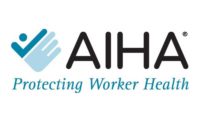By Rene Pana-Cryan, PhD; Debbie Hoyer, MPH; Paul-Émile Boileau, BSc, MSc, PhD; and Martin Lebeau, BSc, MSc
In early September 2016, researchers from Canada and the U.S. convened a workshop in Montreal to analyze current and emerging issues in the economics of worker safety and health, and to formulate potential collaborative research aiming to improve and standardize economic metrics of worker injury and illness, including metrics of the under-recognized burden for workers and their families, employers, and society. Workshop participants included economists from NIOSH, the Institut de recherche Robert-Sauvé en santé et en sécurité du travail (IRSST), the Institute for Work and Health (Canada), and Universities across Canada. Road safety experts from these organizations also participated. IRSST is a research institute that conducts and funds research activities aimed at eliminating risks to worker health and safety and at promoting worker rehabilitation. The Institute for Worker Health is also a research organization and its mission is to protect and improve the health of working people by providing useful, relevant research. The workshop was co-sponsored by IRSST and NIOSH and hosted by IRSST.
Background
NIOSH and IRSST developed a partnership and entered into a Memorandum of Understanding in December of 2014. The two Institutes work collaboratively to advance the protection of workers and promote best practices to improve occupational safety and health in all work environments. The recent workshop was part of NIOSH and IRSST efforts to leverage resources, address global occupational safety and health (OSH) issues, and improve the health of workers globally.
Work is an important determinant of health. To understand how to…Click here to read the rest of the blog post.



